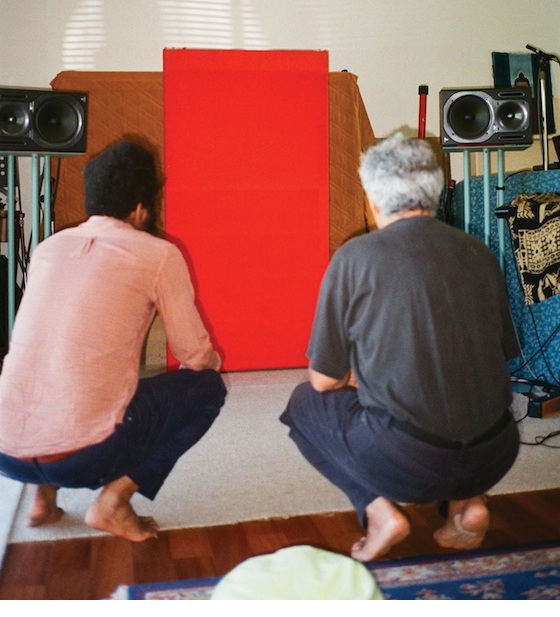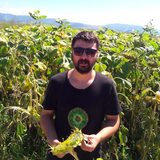Written by:
Share article:
Intergenerational music
The Attic spoke via Skype with both musicians to find out more about it.
Lowe was previously a member of American progressive rock band 90 Day Men, before beginning his solo project. He was involved also in the band OM, performing tambura and vocals for stoner/doom metal band Om on their albums God Is Good and Advaitic Songs and also joined them on stage.
Parisian-born Ariel Kalma is a very meticulous musician, using rhythms, melodies and grooves from various cultures, ambient atmospheres, modal music, native instruments and nature. He studied with the electro-acoustic Group de Recherches Musicales, jammed with Don Cherry and Richard Pinhas and hung with the Arica collective, whose creative philosophies directly inspired Alejandro Jodorowsky’s The Holy Mountain.
Review: Robert Aiki Aubrey Lowe & Ariel Kalma - We Know Each Other Somehow
I think it’s safe to start with your new collaborative project, which will come out on RVNG Intl in the middle of April. So how did you guys meet?
Ariel: Matt contacted me and asked me if I wanted to be part of this project called Intergenerational meeting. I liked the idea of an older composer (which is Robert) meeting a younger composer (which is me) to play music together and record something. I liked the idea very much because I like the idea of collaboration especially with people from different backgrounds or different generations. So, I went to the States a bit later and I met Robert, who kindly took a plane to meet me and we spent one day together, one afternoon. Just to meet…Of course we had Skype sessions before, but we met in person and we even played music together. And we could see that this will work.
So how long did it take to record the album?
Robert: It took one week. I went to Australia, to Ariel’s home, we set up in the studio and over the course of one week we would spend each day composing, expanding upon ideas. One week for the recording and some more months for the mixing, because I couldn't stay for such time in Australia. So we did the mix via email.
Did you have a certain sound in mind when you started recording, or did you experiment and improvise?
Ariel: Well, with that kind of equipment that Robert has, there is a lot of experiment and improvisation. So, the interesting part was how to bring the experimentation of Robert and his equipment (and the way it functions) and my way of playing music, together. That was the big experiment. First I was contacted by Matthew to do the Intergeneration album. As I was talking with Matt and showing him that I’m doing my archives from the ‘70s, he had the idea of producing a new album, together with Robert.







